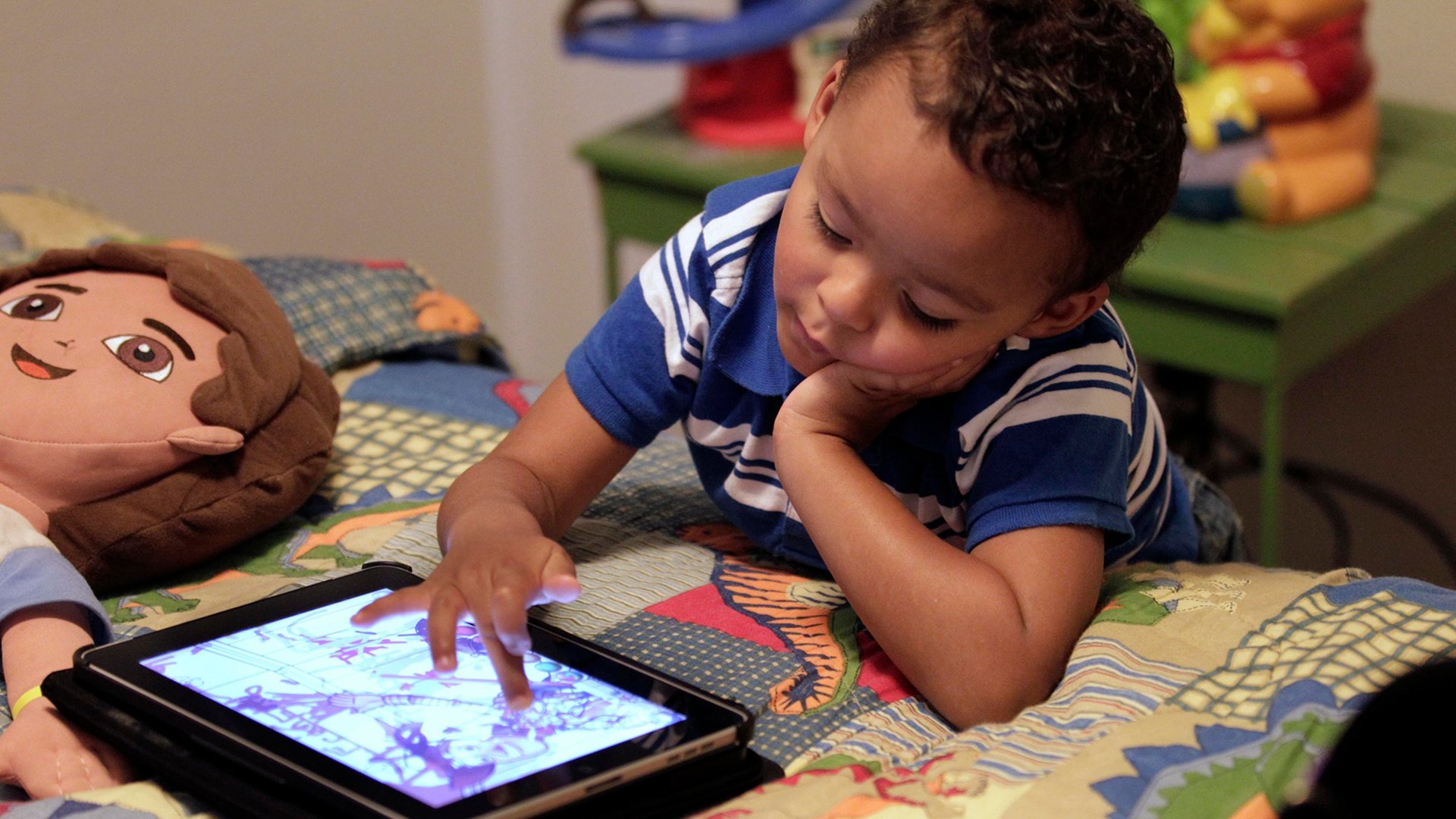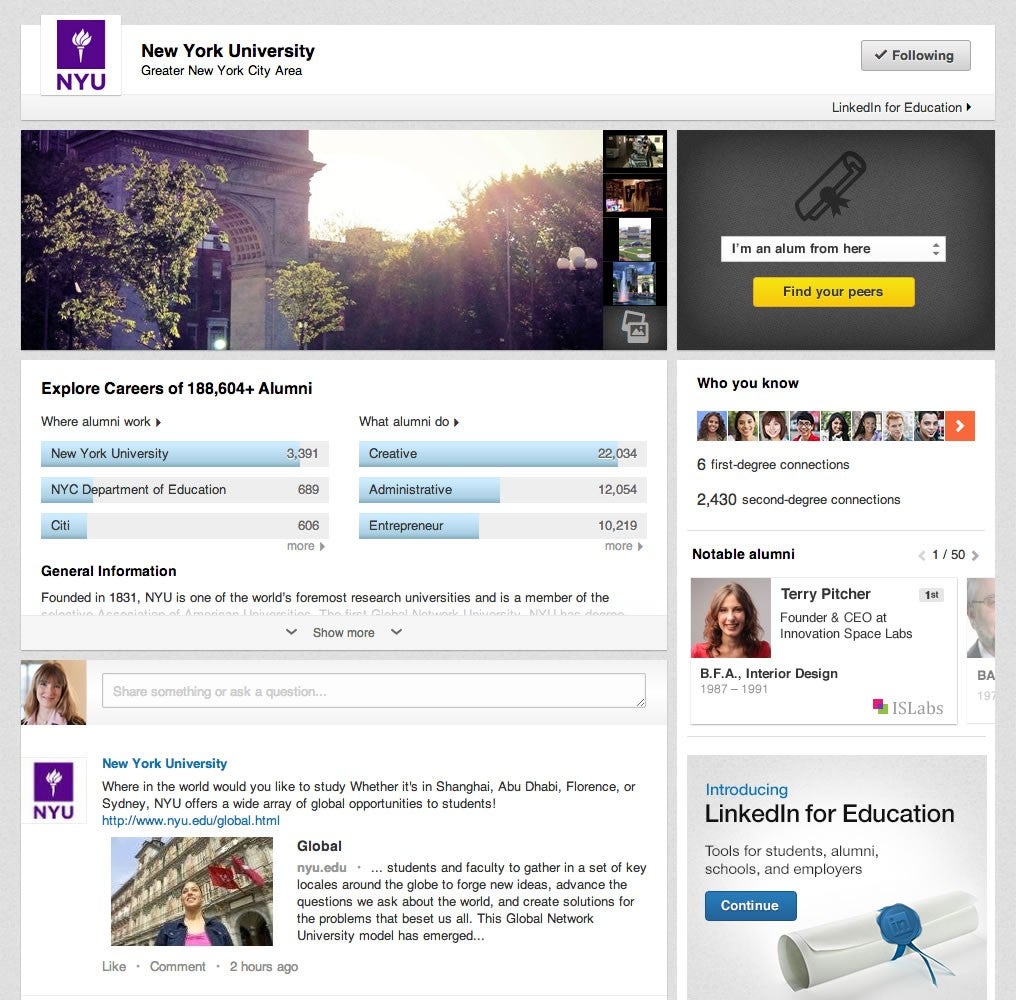LinkedIn thinks your 14-year-old needs a professional resume, and it’s right
When should kids start branding themselves for getting into college and, by extension, a job? At 14, apparently. LinkedIn announced yesterday that its new University Pages feature—which allows colleges some of the same networking and recruiting powers that employers hold on the site—will usher in the age of LinkedIn for kids. With profiles now available for ages 14 and up (13 in some countries, and 16 and 18 in the Netherlands and China, respectively) LinkedIn looks to be honing in on the college admissions process.


When should kids start branding themselves for getting into college and, by extension, a job? At 14, apparently. LinkedIn announced yesterday that its new University Pages feature—which allows colleges some of the same networking and recruiting powers that employers hold on the site—will usher in the age of LinkedIn for kids. With profiles now available for ages 14 and up (13 in some countries, and 16 and 18 in the Netherlands and China, respectively) LinkedIn looks to be honing in on the college admissions process.

It may be a little troublesome to think of high school freshmen fluffing up their LinkedIn profiles, but don’t think it’s not a game they’re already playing: A 2012 study by Kaplan (pdf) found that 26% of college admissions counselors admitted to visiting applicants’ Facebook pages and 27% owned up to general Googling. That number isn’t too high yet, but 87% of schools use Facebook as a recruiting tool—and once students are “liking” a school’s page, it’s hard to imagine that admissions staff aren’t looking at their profiles.
And that’s not going well for students. In 2011, only 12% of counselors who used social media reported finding information that made them less likely to admit an applicant. By 2012, that had risen to 35%. Advice for would-be students includes hiding everything except for pictures of yourself receiving awards. But since bragging about your achievements is the number one cause of Facebook “un-friending,” not many people may want to do that.
Dr. Bernie Hogan of the Oxford Internet Institute told the BBC that having a separate profile on LinkedIn for “professional” life, as so many adults do, may be the lesser of two evils. It could help children “differentiate between the public profile they want for employment [and] the personal profile they share on Facebook with their friends and family.” Employers or schools, meanwhile, shouldn’t look at Facebook pages, he said, because “the risk of unintended discrimination is very high.” In other words, if getting into college requires having a whitewashed internet presence full of accolades and honor societies, at least let the kids have a carefree personal life as well. In addition, LinkedIn’s default privacy settings for youth profiles seem more stringent than those on Facebook.
It could very well be that LinkedIn is hoping to partially automate the admissions process, using the same big data it applies to job searches to help counselors sort through their applicants. Hopefully it’ll help applicants choose between colleges too.